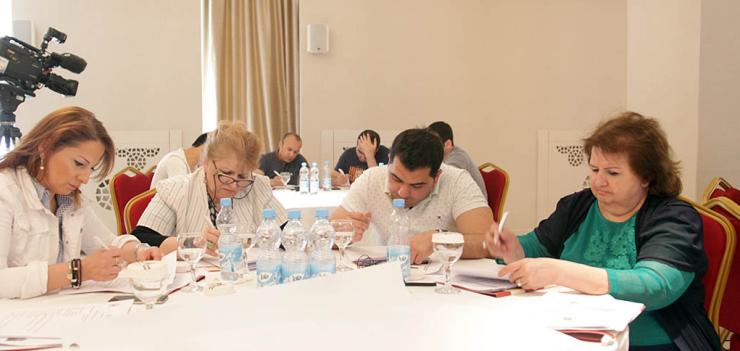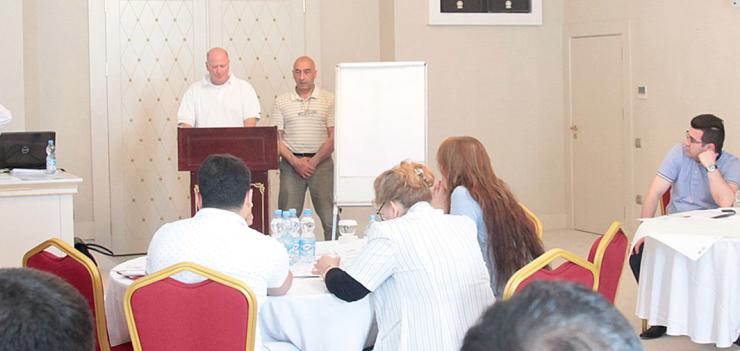EWMI organized a monitoring and evaluation training event for 33 members of the Council on State Support to NGOs under the President of the Republic of Azerbaijan (CSSN). Through the Socio-Economic Development Activity in Azerbaijan (SEDA), EWMI and CSSN work in partnership to strengthen the organizational and advocacy capacity of CSOs in Azerbaijan and enable them to engage effectively with government officials and advocate for a citizen-driven socio-economic development agenda.
The two day training session answered some of CSSN members' most frequently raised questions and concerns on how to monitor and evaluate the projects implemented by CSSN grantees. Topics discussed included: the linkage between planning, monitoring and evaluation stages, introduction of the logframe as a major tool for monitoring & evaluation, evaluation tools, and several other issues. The training participants had an opportunity to practice in group-work on formulating goals, activities and indicators. During the second day of training, participants brainstormed on how to apply their new knowledge.
Training participants greatly appreciated this opportunity and thanked organizers for the initiative. CSSN member Rena Mirzazade mentioned, “Having participated in this training I realized that monitoring and evaluation has an academic basis and as a scientist I was very pleased to learn about new scientific concepts and approaches.” During concluding remarks, Farasat Gurbanov mentioned that apart from being a unique capacity building opportunity the trip was also enjoyable and very useful in terms of team building. He suggested to have a continuation of the capacity development initiative for CSSN and suggested a topic for the next training – negotiation skills for policy-makers.
The Socio-Economic Development Activity in Azerbaijan (SEDA), funded by USAID and co-financed by the Government of Azerbaijan, aims to contribute to the advancement of the socio-economic development at the regional level in Azerbaijan by providing support for community-driven socio-economic projects and strengthening stakeholder participation in setting priorities for socio-economic strategies and programs in the regions that SEDA targets and beyond.


